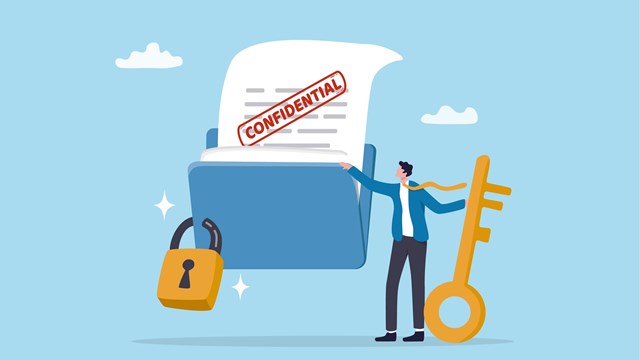
Is a condominium -- or any type of common interest community -- a democracy? Do the shareholders in a co-op have the right to access the documents and information their boards use to make decisions? Can they demand to see those documents? The answer is not a simple yes or no.
What Does the Law Say?
“‘Democracy’ is an interesting term -- particularly when it is applied to condominiums and cooperatives,” says attorney Dennis Greenstein, a partner at the New York law office of Seyfarth Shaw and the co-chair of the firm’s Condominium and Cooperative Practice Group. “Many unit owners and shareholders who have never served on the board may view some of the actions (or rumored actions) of the board with suspicion, or worse.” That’s unfortunately a reality of life in shared communities, and can make a board’s job more difficult.
Greenstein explains that “Section 339-w of the New York State Condominium Act states in part that the board of managers ‘shall keep detailed, accurate records, in chronological order, of the receipts and expenditures arising from the operation of the property. Such records, and the vouchers authorizing the payments, shall be available for examination by the unit owners at convenient hours on weekdays. A written report summarizing such receipts and expenditures shall be rendered by the board of managers to all unit owners at least once annually.’ Accordingly, all condominium bylaws must contain language complying with the requirements of Section 339-w above.”
Greenstein adds that “While Section 339-w is very limited in its requirements, some bylaws provide for additional specific types of documents which are available for examination by the unit owners. The bylaws also provide for unit owners to receive audited financial statements each year, which will satisfy the last sentence in Section 339-w above. Generally, unit owners or prospective purchasers of units may review those books and records of the condominium which the board permits to be reviewed.” In simple terms, documents easily obtainable by non-board association members include such things as a list of members of the association and minutes of meetings.
But what about other kinds of documents, like vendor bids for major capital projects or, for argument's sake, commitment letters for financing common area improvements in a condominium, or an underlying permanent mortgage for a co-op property? Are unit owners and shareholders entitled to examine those?
“More controversial claims arise where there is a request for the review of contracts and agreements, rather than merely a list of the names and addresses of unit owners,” observes Greenstein. “The courts have been more liberal in their decisions in granting access to documents, and common law has been applied equally to condo unit owners as it was previously granted to cooperative shareholders. Each board must consult with counsel to review what their bylaws provide, the nature of the documents sought, and reason for the request. Inspections sought in good faith and for a valid purpose will generally be upheld by the courts. Requests that have a malicious intent against board members, or to harm a condominium will -- or should -- be rejected by the court. There also may be confidential information that is protected by law, or that could be prejudicial to a unit owner or the condominium if disclosed. [That] should be evaluated, and that information possibly not provided to the requesting unit owner.”
What About Malfeasance?
Given the restrictions on access to information, what should a condominium member do if they suspect there may have been malfeasance on the part of the board, a board member or management? How can they access documents that might indicate that in fact their suspicions are correct?
Greenstein suggests that “If there is a suspicion of malfeasance on the part of management, owners should bring it to the attention of the board. If it is a board member, [the owner(s) should] bring it to the attention of other board members -- unless they believe those other board members also are involved in the misconduct. If a satisfactory response is not received, then make a formal demand to investigate the issue. And if that does not yield satisfactory results, and the issue is serious enough, bring a derivative action, which condominium unit owners have a right to do under New York law. If a majority of the board is engaged in misconduct, then the formal demand requirement may be excused as ‘futile’ and the unit owner can proceed directly to court without making the demand.”
Other remedies recommended by Greenstein include requesting that a special meeting of the unit owners be called pursuant to the procedures in the bylaws of the condominium to remove some or all of members of the board, and possibly the management as well. While there is a risk that this action may fail to accomplish the intended goal, if a new board or a sufficient number of new board members are elected to create a majority vote, they could then hire a forensic accounting firm to perform an investigation into the behavior of the outgoing board, as well as have the building’s counsel guide them to take any other necessary actions. Before taking such action, it’s critical to evaluate all of the options available and to determine the realistic anticipated level of support in the building of the persons intending to attend the special meeting in person and by proxy to carry the votes.
Condominium owners should review both the state and local statutes that govern their associations and the association’s governing documents as well to fully understand their rights to receive and review various types of documents.









Leave a Comment